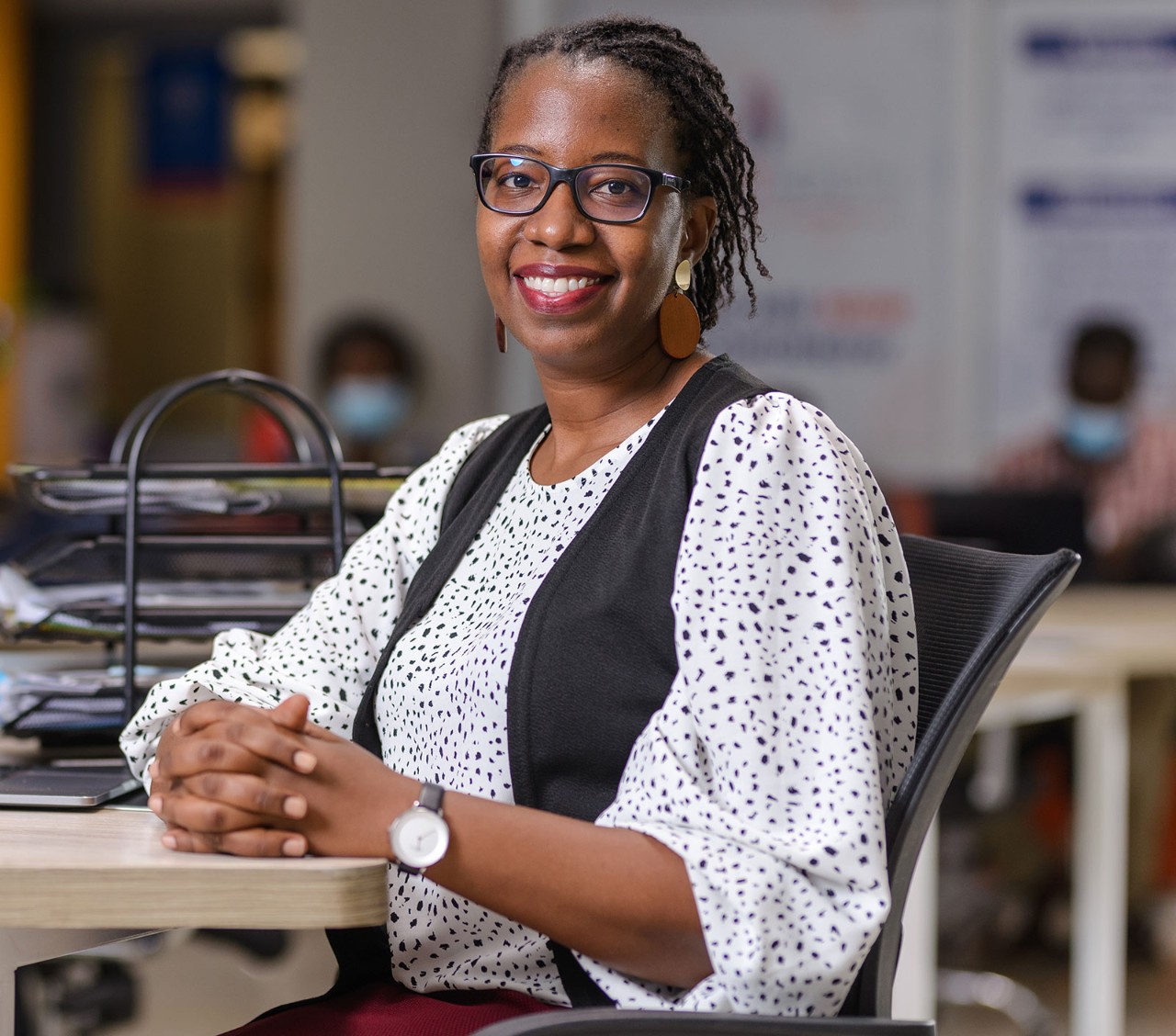
In many ways, Africa is caught between a rock and a hard place with climate change. It is home simultaneously to some of the world’s fastest-growing economies and poorest communities, and it is a continent with generally low emissions and masses of natural resources – yet its constituent nations are reliably among the first to experience the devastating effects of climate change.
‘We need to bridge the gap between thinking and doing,’ said a participant at one of ACCA’s two COP 26 roundtables in Africa – one in Kenya and the other in Nigeria. Another argued that a ‘tragedy of the commons is unfolding because there is a lack of impetus and understanding on the ground’.
Americas
COP 26 roundtable discusses the myriad challenges of going green in the Americas
‘Without incentives or consequences, companies are unlikely to make the first move’
Asia Pacific
Asia-Pacific climate roundtable gets real about net-zero commitments in a warming world
Not all on same page
‘Poverty is a big deal,’ said a standard-setter speaking at one of the events. ‘In villages, they have more immediate concerns.’
A disconnect between high-level government and corporate attempts at improving sustainability and the realities in rural communities was raised multiple times throughout the discussion.
‘In Tanzania,’ said one participant, ‘the goal is to electrify, and we are making strides. We are at around 70% penetration, but we are not seeing the energy mix at a household level. Firewood and charcoal are still the leading fuels for most people, trees are still being cut down. Energy alternatives need to be more affordable.’
Other key problems outlined by roundtable participants included a lack of focus from the regulators, few incentives to go green, and a reduced level of demand (compared with western Europe, for example) from consumers for products and services that respect environmental, social and governance (ESG) interests.
‘We need to really show businesses the costs involved in becoming net zero – and the costs of not doing it'
‘Without incentives or consequences,’ said one CFO, ‘companies are unlikely to make the first move.’
Participants generally agreed that, across the region, levels of public understanding were lower than desired. And they called for governments and private organisations to develop sustainability communications strategies that could help close the gap between planning and doing.
Though levels of awareness are not ideal, some countries are tweaking environmental laws to reflect their own situation. One participant from Mauritius explained that the government has implemented tougher legislation, including penalties, because the country is particularly vulnerable to climate change. And the government is looking to do more too, including reviewing its nationally determined contributions under the United Nations Development Programme’s Climate Promise initiative.
Show me the money
But the two roundtables, attended by representatives from across multiple industries and sectors, and from a wide range of countries, did discuss plenty of practical solutions to the problems at hand.
‘One of the major issues is pushing companies to allocate resource to making sustainable decisions,’ said one member. ‘This means improving reporting frameworks so that they produce information that adds value to the business, really showing them the costs involved in becoming net zero – and the costs of not doing it.’
There was a great deal of agreement across both roundtables that more of the stick and less of the carrot was essential for bringing about the necessary pivot towards sustainability. ‘Whatever hurts the bottom line gets attention,’ said one participant.
'You need to ask yourself, are you translating these issues for the board, are you being an ambassador, a trendsetter?'
Ireland
Participants in Ireland’s COP 26 conference highlight urgent need for accountants to lead on sustainability
Middle East
Three roundtables with representatives from across the Middle East region discuss climate urgency, optimism and room for improvement
Both roundtables also discussed incentives. ‘Access to green finance is key,’ said one member. ‘In Ghana, it’s hard for the typical small to medium-sized enterprise to access capital. Interest rates on lending are very high. So banks should start by creating minimally priced products for companies with sustainable goals and projects.’
A representative from Nigeria agreed. ‘SMEs are the bedrock of the Nigerian economy. There needs to be a concerted effort to educate them on sustainability and help them get access to the finance that can drive change.’
Others argued that tax incentives and government-issued green bonds could help turbocharge the ESG agenda. ‘Prescribing the amount of assets pension funds should invest in green companies could be a game-changer,’ said one member from Zimbabwe.
More coordination
Co-operation between government and the private sector was also a hot topic at both sessions. A CFO at a beverage company in Tanzania described how the country’s ability to generate solar power was on a par with Spain’s. ‘But the government has invested heavily in hydropower. This has discouraged private investment in solar and wind, because these players will simply end up in direct competition with the government on prices.’
More coordination and discussion between legislators and the private sector was something all participants agreed on. And there was recognition too that accountants could play a major role in the transition to a green economy.
‘Accountants have public interest training and a powerful ability to articulate the real-life impact of the numbers,’ said one participant. But, argued others, corporate citizenship is missing, and accountants need to step up.
‘Accountants support the business by allocating budget and sharing their insights. They have a seat at the table. The CFO is often an executive director on the board. So you need to ask yourself, are you translating these issues for the board? Are you being an ambassador? Are you fighting for these changes all the way through to the AGM? Are you being a trendsetter?’
Africa-EU strategic partnership
Africa and the EU aim to pool resources and expertise and scale up their efforts towards delivering the Paris agreement and achieving the UN’s Sustainable Development Goals.
But for the partnership to work, it must be a true collaboration, say experts. Ndidi Nnoli-Edozien, chair of the Circular Economy Innovation Partnership and managing partner of professional services firm Afrikairos, urged officials not to fall into old traps, but to focus on solutions that were specific to, and right for, Africa’s context.
‘For example, the centralised power distribution systems of Europe won’t work here,’ she said. ‘Energy needs to be distributed differently. Africa is not passive in this process and must decide what it needs.’
Africa has shown it has the ability to leapfrog,’ said Musonda Mumba, chief of the UN’s Environment Programme’s terrestrial ecosystems unit. ‘For example, we did not have a widespread landline telecoms system, so we have gone straight to mobile. African markets are capable of innovation… but how do we manage a just transition in a way that leaves no-one behind?’
The partnership also aims to close the financing gap. The EU, argued Mofifoluwa Ayokunnumi Olawumi, head of sustainability partnerships at Access Bank in Nigeria, could encourage ‘blended finance, working with the private sector, government and development organisations to finance projects that otherwise might not get off the ground’.
Accountants lead
Among participants, there was some acknowledgement of a skills gap. One representative from South Africa, a country with highly developed sustainability reporting, said: ‘This is a complicated area. Accountants need to bring in experts on ESG to help them and recognise that collaboration on this issue is key.’
Africa is changing at a rapid pace, but its growth is uneven. Without special attention, argued participants, corporate attempts at improving ESG would falter, unsupported by governments, lost on consumers, and irrelevant to many in villages whose concerns are more subsistence-focused.
‘We have a responsibility,’ said one member. ‘The public looks up to us as an ethical profession.’ Another summed it up: ‘As accountants, we need to keep arguing that this is not a profit problem but a resilience problem. Try to tackle awareness and advocate consistently for good corporate citizenship.’
Further information
Keep up-to-date with sustainability-related issues with our curated selection of resources.
See also ‘Working together for SDG progress’, and a discussion in Zimbabwe: ‘Climate action is everyone’s job’.
UK
COP 26 roundtable discusses UK members’ views of sustainability and superhero accountants



